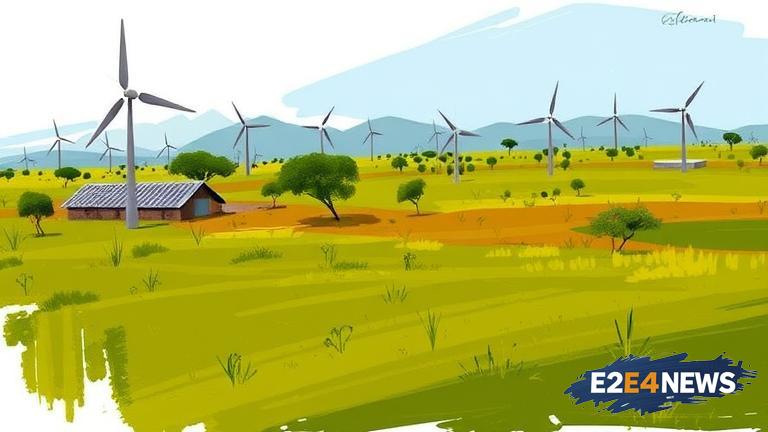Africa has been at the forefront of the global renewable energy revolution, with many countries on the continent investing heavily in solar, wind, and hydroelectric power. The African Union has set ambitious targets to increase the use of renewable energy, aiming to have at least 30% of the continent’s energy mix come from renewable sources by 2030. This goal is driven by the need to reduce dependence on fossil fuels, which are not only a major contributor to climate change but also a significant drain on African economies. Renewable energy offers a cleaner, more sustainable alternative, and many African countries are taking advantage of their abundant natural resources to harness its power. South Africa, for example, has made significant strides in renewable energy, with solar and wind power accounting for over 5% of the country’s energy mix. Kenya is another leader in the field, with geothermal energy playing a major role in the country’s energy sector. Morocco has also invested heavily in renewable energy, with a focus on solar power and a goal of generating 52% of its energy from renewable sources by 2030. Egypt is also making significant progress, with a number of major solar and wind projects underway. The benefits of renewable energy are numerous, including reduced greenhouse gas emissions, improved air quality, and enhanced energy security. Additionally, renewable energy can create jobs and stimulate local economies, which is particularly important in Africa where many countries are struggling to create employment opportunities for their growing populations. The cost of renewable energy is also decreasing, making it more competitive with fossil fuels and increasing its appeal to investors. However, there are still challenges to be overcome, including the need for significant investment in infrastructure and the development of policies and regulations to support the growth of the renewable energy sector. Despite these challenges, the future of renewable energy in Africa looks bright, with many experts predicting that the continent will play a major role in the global transition to a low-carbon economy. In fact, a recent report by the International Renewable Energy Agency (IRENA) found that Africa could generate up to 50% of its energy from renewable sources by 2050, creating millions of jobs and stimulating economic growth in the process. The report also highlighted the importance of international cooperation and investment in supporting the growth of the renewable energy sector in Africa. Many countries, including China, the United States, and the European Union, are already providing significant support to African countries to help them develop their renewable energy sectors. This support includes funding, technology transfer, and capacity building, and is helping to accelerate the transition to a low-carbon economy. In addition to international support, many African countries are also taking steps to develop their own renewable energy sectors, including the development of policies and regulations to support the growth of the industry. For example, South Africa has introduced a number of policies to support the development of renewable energy, including a renewable energy independent power producer procurement program. Similarly, Kenya has introduced a number of incentives to encourage the development of renewable energy, including tax breaks and feed-in tariffs. These efforts are helping to create a favorable business environment for renewable energy investors and are supporting the growth of the industry. Overall, the renewable energy revolution in Africa is gaining momentum, driven by the need to reduce dependence on fossil fuels and mitigate climate change. With the right policies and support in place, Africa has the potential to play a major role in the global transition to a low-carbon economy, creating jobs, stimulating economic growth, and improving the lives of millions of people in the process.
